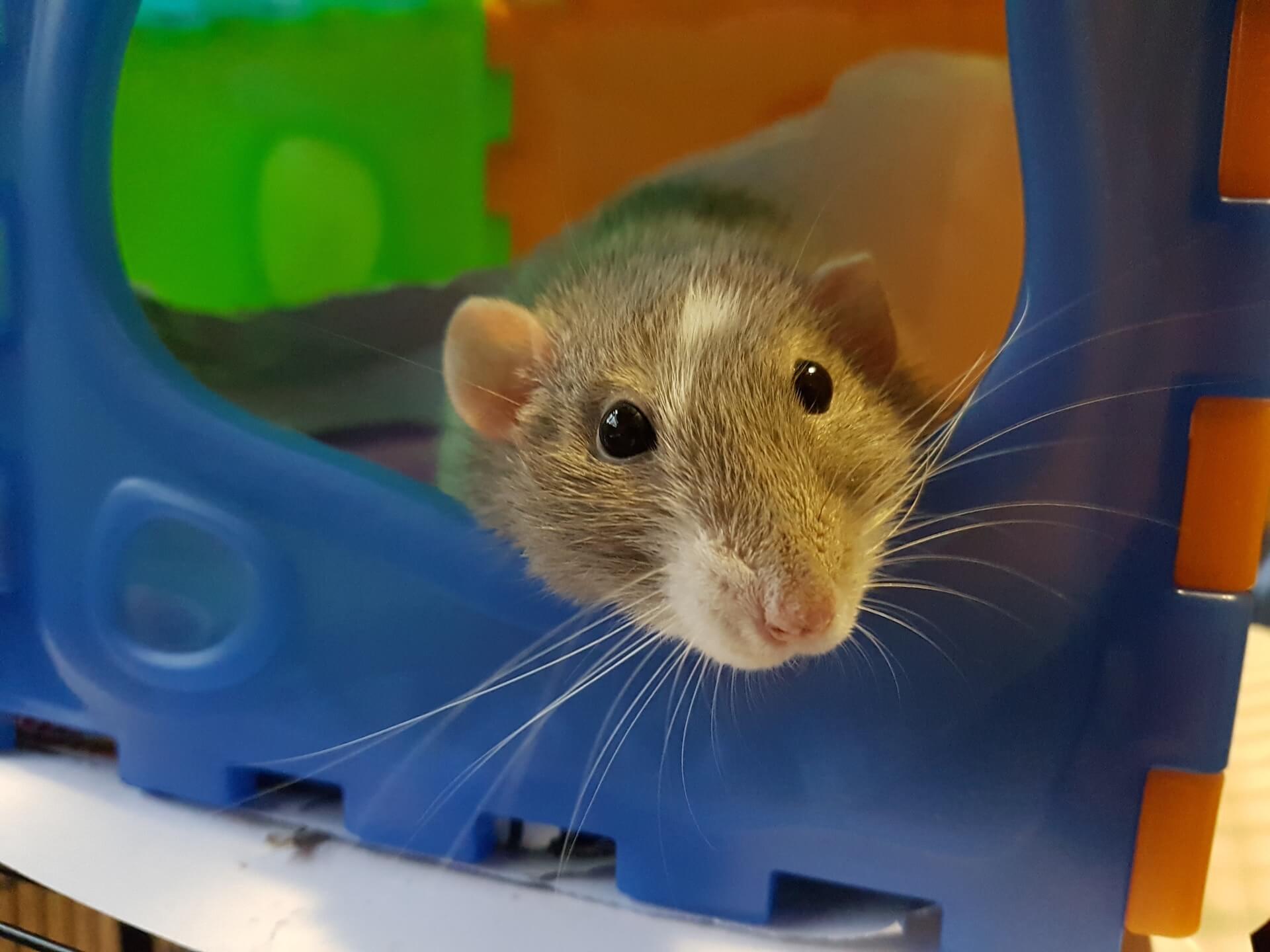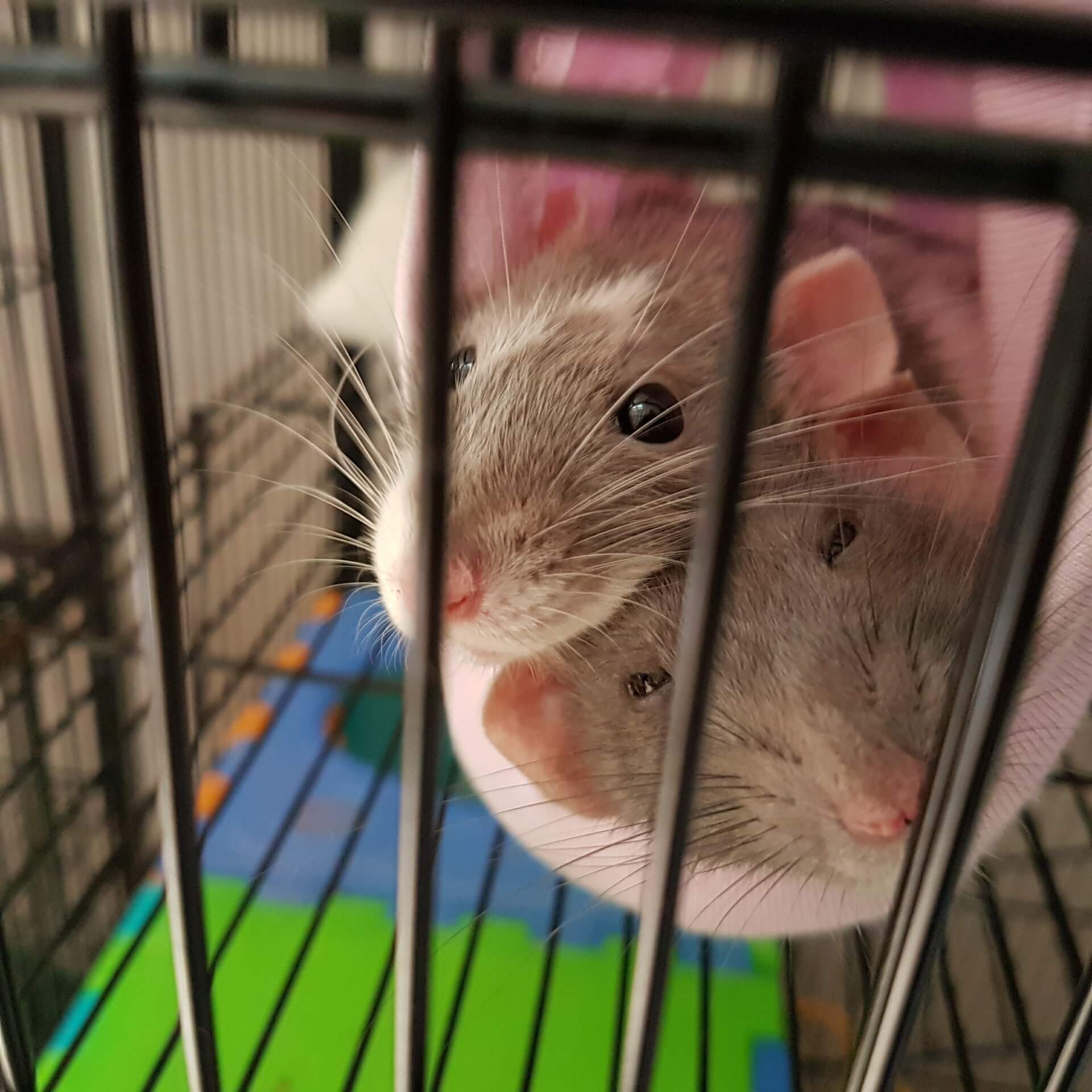Fancy rats, also known as domesticated rats, are intelligent, affectionate, and entertaining pets. To ensure a happy and fulfilling life for your furry friend, it’s essential to prioritize their health and well-being. In this guide, we’ll explore common ailments that can affect fancy rats and provide tips on how to keep your pet healthy.
Common Health Issues in Fancy Rats
Fancy rats are generally hardy pets, but like all animals, they can be susceptible to various health problems. Being aware of these issues and their symptoms can help you provide timely care. Here are some common health concerns in fancy rats:
1. Respiratory Infections
Respiratory infections are one of the most common health issues in rats. Symptoms may include sneezing, nasal discharge, labored breathing, and lethargy. Ensure your rat’s living environment is clean and well-ventilated to reduce the risk of respiratory problems.
2. Mites and Lice
External parasites like mites and lice can affect rats. Signs of infestation include excessive scratching, skin irritation, and hair loss. Regularly check your rat’s fur and skin, and consult a veterinarian if you suspect an infestation.
3. Tumors
Rats are prone to developing tumors, particularly as they age. These growths can be benign or malignant. Watch for lumps or bumps on your rat’s body and consult a vet if you notice any unusual growths.
4. Dental Issues
Rats’ teeth grow continuously, and dental problems can occur if they don’t wear down properly. Signs of dental issues include drooling, weight loss, and reluctance to eat. Provide your rat with safe chew toys and a balanced diet to promote dental health.
5. Gastrointestinal Problems
Gastrointestinal issues like diarrhea or constipation can affect rats. Monitor your rat’s feces for any changes in color, consistency, or frequency. Ensure they have a balanced diet and access to fresh water.
6. Obesity
Overfeeding and a lack of exercise can lead to obesity in rats. Obesity can contribute to various health problems, including heart disease. Provide a balanced diet and encourage physical activity through toys and playtime.
7. Urinary Tract Infections (UTIs)
UTIs can cause discomfort and health issues in rats. Signs may include frequent urination, blood in the urine, or straining to urinate. Ensure your rat has access to clean, fresh water, and maintain proper cage hygiene.
8. Ectoparasites
In addition to mites and lice, rats can be susceptible to other ectoparasites like fleas. Examine your rat’s fur and skin regularly and consult a vet if you notice signs of infestation.
Tips for Maintaining Your Rat’s Health
Now that you’re aware of common health issues in fancy rats, let’s explore some proactive steps you can take to keep your pet healthy and happy:
1. Regular Veterinary Care
Schedule routine check-ups with an experienced exotic pet veterinarian. Regular vet visits allow for early detection and treatment of health issues.
2. Clean Living Environment
Maintain a clean and hygienic cage or enclosure. Regularly change bedding, clean toys, and ensure proper ventilation to reduce the risk of respiratory problems.

3. Balanced Diet
Provide a balanced diet consisting of high-quality rat pellets, fresh vegetables, and occasional fruit treats. Avoid feeding sugary or fatty foods, as they can contribute to obesity and other health issues.
4. Hydration
Always provide fresh, clean water in a spill-proof bottle. Dehydration can lead to various health problems, so ensure your rat has easy access to water.
5. Exercise and Mental Stimulation
Fancy rats are highly intelligent and require mental and physical stimulation. Offer a variety of toys, tunnels, and opportunities for exploration to keep them engaged.
6. Social Interaction
Rats are social animals and thrive on companionship. Consider having at least two rats to prevent loneliness and provide social interaction.
7. Quarantine New Additions
If you introduce new rats to your existing group, quarantine them for a few weeks to prevent the potential spread of diseases.
8. Handling and Bonding
Spend time handling and interacting with your rats to build trust and strengthen your bond. Social rats tend to be happier and less stressed.
9. Environmental Enrichment
Create an enriching environment with hiding spots, tunnels, and climbing structures. Rats enjoy exploring and benefit from a stimulating living space.
10. Watch for Changes
Be vigilant and monitor your rat’s behavior, appearance, and habits. Any sudden changes in behavior or health warrant immediate attention from a veterinarian.

Caring for a fancy rat involves being proactive about their health and well-being. By providing a clean and safe living environment, a balanced diet, regular veterinary care, mental stimulation, and social interaction, you can ensure that your pet enjoys a long and healthy life.
Remember that rats are social creatures that thrive on companionship, so consider adopting at least two rats to provide the social interaction they need. With proper care and attention, your fancy rat will reward you with affection, intelligence, and a unique bond that can bring joy to your life for years to come.



1 comment
[…] healthy treats like small pieces of fruit, vegetables, or yoghurt as occasional […]